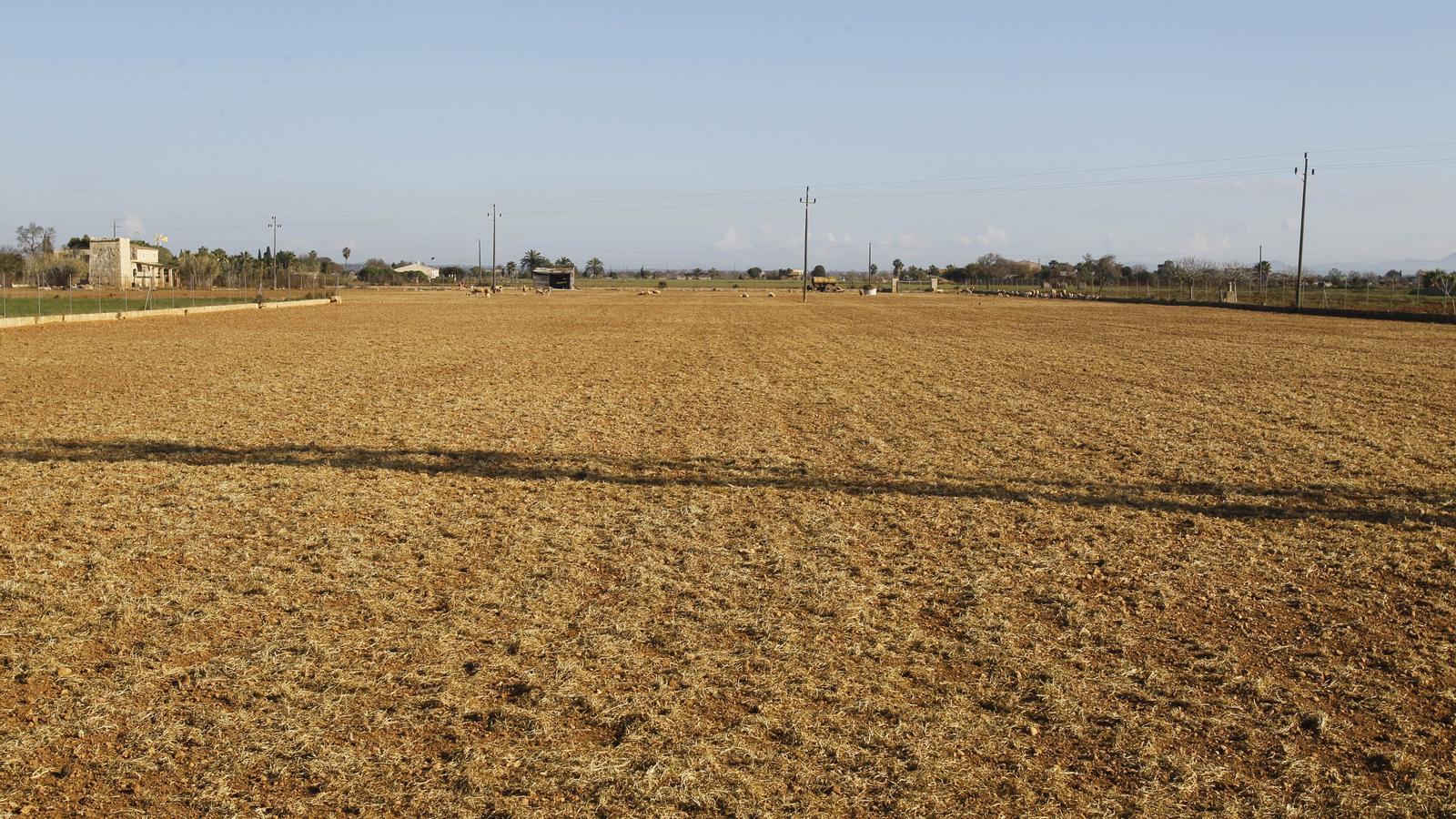The Commonwealth demands that the Government declare a drought emergency by municipality
The Ministry has conveyed to the municipalities its willingness to closely monitor the evolution of the situation and to work together to find solutions adapted to the reality of each municipality.

SinedThe Pla de Mallorca Association has proposed to the government that a drought emergency could be declared on a municipality-by-municipality basis, without affecting the entire Demand Unit (remember, this includes Muro and Santa Margalida). Meanwhile, the government is studying the implementation of new parameters that could be used to declare an emergency in the Pla de Mallorca area soon.
Representatives of the Pla de Mallorca Community (Mancomunidad Pla de Mallorca) traveled to Ciutat de Mallorca yesterday morning to meet with the Regional Minister for the Sea and the Water Cycle, Juan Manuel Lafuente, and the Director General of Water Resources, Joan Calafat. According to the Government, "it was a working meeting focused on the challenges posed by the water supply" in our region.
Representing the Plan were the President of the Community and Councilor for Ariany, Joana Maria Pascual; the manager of the entity, Joan Cifre; the mayors of Algaida and Montuïri, Margalida Fullana and Paula M. Amengual, and the mayors of Sineu, Tomeu Mulet; María, Jaume Ferriol; San Juan, Richard Thompson; and Santa Eugenia, Pep Lluís Urraca.
According to sources from the Government, the meeting "analyzed the specific difficulties faced by the municipalities of the Pla, most of which do not have a connection to the Government's high-voltage supply network, as well as the additional pressure posed by the summer season. The Ministry has conveyed to the municipalities its desire to closely monitor the evolution of the situation and.
Municipality by municipality
For her part, Joana Maria Pascual, president of the Mancomunidad (Community of Municipalities), explained that they have been very clear: "First, we have raised the question of whether the emergency declaration can be made by municipality and, second, that once the emergency has been declared, it should not be just a matter of paying for the truckloads of water; there must also be emergency works; there are no emergency works, paying for them."
This has come about, according to Pascual, after the Government announced that it is studying changing the parameters that regulate or diagnose the level of the demand unit. Let's remember that these are: normality, pre-alert, alert, and emergency. Right now, the Plan is in pre-alert, but according to these new parameters with which the Government is working, the emergency could be declared shortly.
That's why Pascual explains that "the emergency situation implies certain measures for the Administration and for the citizens. We can't ask the irrigated farmers of Ariany, for example, where the wells don't show any minimal problem with water shortages, to reduce their well water consumption to 30%." Hence, the Mancomunidad (Community of Municipalities) is pushing for specific declarations to be made, by municipality.
Finally, according to Minister Juan Manuel Lafuente, the Government and the Commonwealth of Puerto Rico (Asociación de Puerto Rico) have convened another meeting to analyze the progress of the Plan's Demand Unit and how the Commonwealth's requests can be resolved. This will be held on August 18th.
Investments with the eco-tax
The Regional Minister of Tourism, Culture, and Sports and former mayor of Montuïri, Jaume Bauzà, joined the press conference following the meeting with representatives of the Mancomunidad (Association of Municipalities) to explain the allocation of funds from the Sustainable Tourism Tax (ITS) or ecotax for actions related to the water cycle.
Bauzà announced "an unprecedented call for grants" aimed at improving and modernizing water infrastructure in municipalities with fewer than 100,000 inhabitants. The financial allocation, which amounts to €57,398,362, is part of the Annual Plan to Promote Sustainable Tourism 2024-2025 and aims to strengthen water supply, distribution, and sanitation networks as a basis for more balanced and resilient development.
Councilor Lafuente explained that the design of the call for proposals "has taken into account criteria of equity and efficiency." The distribution of funds will be based on variables such as population, municipal area, water consumption, and territorial complexity. In addition, minimum amounts are reserved for smaller municipalities, which often have less investment capacity.
Network renovations, leak repairs, the installation of digital control systems, the construction of new reservoirs or wells, and improving the quality of drinking water are some of the areas that will be addressed. The goal is to reduce losses, increase system efficiency, and guarantee supply in a context marked by climate change and seasonal pressures derived from tourism.
This initiative, financed through the Fund to Promote Sustainable Tourism, is valid for several years until 2027, with the possibility of extension. Up to 100% of the total cost of projects may be subsidized, provided they meet the technical, legal, and administrative requirements established in the call for proposals.
